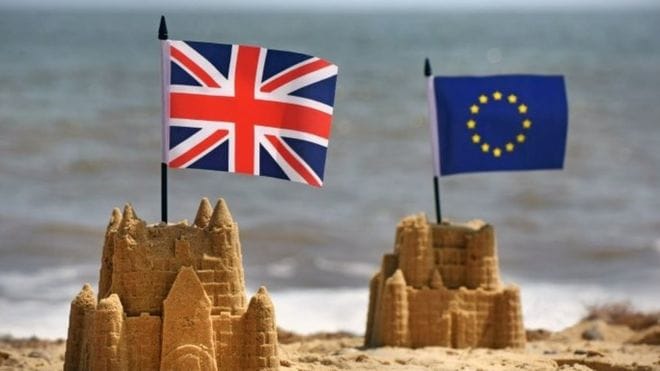The Tory party in Britain is tearing itself apart.
On one side stands the buffoon Borris Johnson, who cries that Britain is about to become a ‘colony’ of the EU because of Theresa May’s compromise deal.
On the other hand, stands a leader who only stays in office because her rivals cannot agree on a candidate to replace her.
Behind these antics lie a wider decline in British capitalism and the failure of its traditional ruling class party to get their act together.
One section of the Tories, around Johnson and Jacob-Rees Mogg, think that their best hope for re-creating a British empire is to throw their lot in with Trump and promote a revived Thatcherism by removing all regulations on the big corporations. They hope that the City of London can once again become the major centre for financial speculation and tax evasion. To win support for this vision, they have whipped up the most vile racism against migrants.
The other section of the Tories around Theresa May is closer to big business. They know that 44% of British exports still go to the EU and that Frankfurt and Paris are chomping at the bit to replace London as a finance centre. They prefer a soft Brexit that will cushion British capitalism against a calamitous fall.
The Brussels bureaucracy have squeezed their rivals in Britain hard to force them into a humiliating compromise. They want to hold Britain up as an example to other countries who might think of leaving the EU.
What we are witnessing here is not battle between ‘progressive Europe’ and ‘a backward Britain’.
It is a bitter fight between different ruling elites who are willing to wield whatever weapon they can to defeat their rivals.
The people of Ireland could be deeply affected from the fall-out.
A ‘hard border’ can re-appear on the island, strengthening partition for another generation. The weakness of Irish capitalism also means that the Irish economy could be hit by a trade war between Britain and the EU.
Ireland is the most dependent country in the EU on trade with Britain.
We need to stand ready to oppose any of these possible consequences.
- We should not allow any border controls to be re-imposed. Amongst the Irish political establishment, there is already talk of setting up border controls to protect the EU. We should reject this entirely.
- People on both sides of the border should mobilise against any attempt by either the EU or Britain to re-impose border controls. People Power can always dispose of what elites propose.
- We should demand a referendum on any decision by the Irish government to assent to a deal between Britain and the EU. That way we can make sure, that our own political elite do not compromise on the border in the final days of negotiations.
- We should insist that workers do not bear the costs of Brexit through more austerity. Let those who have made huge profits during the recovery reach into their pockets.
- Brexit shows that we ned to re-orientate the Irish economy away from its current track.
- Our country has become a tax haven for global capitalism and native industry remains over-reliant on the British economy.
- We need a new programme of public investment, a switch to creating green jobs and a new economy that puts the needs of people ahead of profit.
